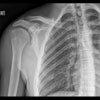Radiologists and other healthcare professionals working in insecure and volatile environments must have adequate training in how medical ethics apply in these circumstances.
Also, there is a need to increase concern by individuals who are in a position to make changes to ensure security of healthcare treatment.
These are two key finding in a new report, "It's a matter of life and death," by the International Committee of the Red Cross (ICRC), which states that the insecurity of healthcare is one of the biggest, most immediate, unrecognized humanitarian problems in today's conflicts. The authors support better protection of hospitals from the effects of explosive force, better training of state armed forces to give ambulances rapid and unhindered passage to hospitals and treatment facilities, and deterring entry of armed forces, whether state-affiliated or perpetrators of violence.
The study analyzed reports of 655 violent events occurring since 2008 that affected healthcare in 16 unnamed countries where the Red Cross operates. It details different types of perpetrators of violence, the means used by the perpetrators, and who and how people are affected. The report states that each incident has a knock-on effect that may have an effect on thousands of people with respect to receiving healthcare.
Dr. Vivienne Nathanson, director of professional activities at the British Medical Association, stated in an editorial published 10 August in the British Medical Journal that the campaign was timely. "Events in Libya, Bahrain, Yemen, and elsewhere make it clear that when people take up arms for whatever reason, violence perpetrated against healthcare facilities and personnel is all too common. In such contexts, healthcare is often suspended, withdrawn or impossible," she wrote.
Visit the ICRC website for more details.



















